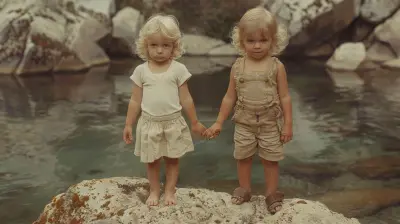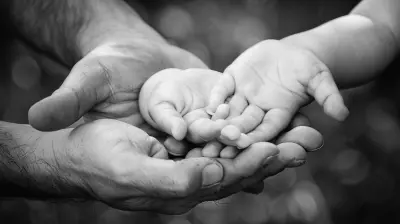How to Make Science Fun for Your Kids
17 June 2025
Let’s be honest: when most kids hear the word “science,” they picture long boring lectures, intimidating equations, or someone in a lab coat muttering things no one understands. But guess what? Science doesn’t have to be scary. In fact, it can be downright exciting—like magic, but with explanations!
If you’re a parent looking for ways to make science fun for your little ones (without turning your kitchen into a full-time lab), you’ve come to the right place. Let’s dive into how you can turn your kid's natural curiosity into a love for science—without any tears, tantrums, or toxic chemicals involved.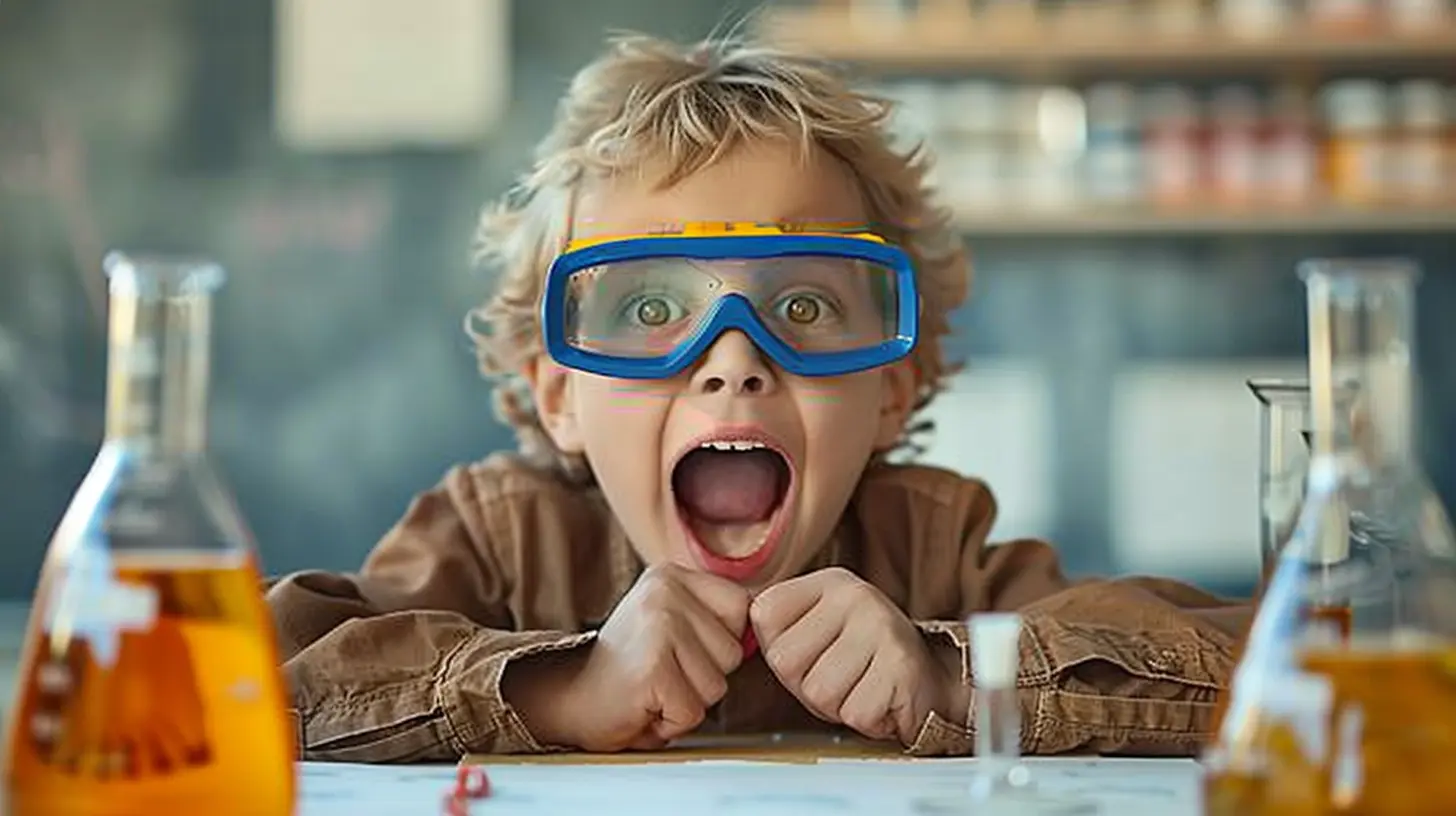
Why Bother Making Science Fun?
First off, why should we even care about making science "fun"?Because kids learn best when they’re having a good time. Think about it: would you have enjoyed learning multiplication if it felt like punishment? Heck no!
Science is everywhere—from the bubbles in your soda to the way your dog knows it’s dinner time. When kids realize that science isn’t just some abstract concept but a part of their everyday lives, the learning sticks. More importantly, it ignites a sense of wonder. 🔬✨
Start with Their Interests
Every child is different. Some are obsessed with dinosaurs. Others want to know why the moon follows them at night. Some just like blowing stuff up (safely, of course). The golden rule: meet them where they are.Here’s how to tailor science fun to different interests:
- Animal Lovers: Talk about habitats, food chains, or camouflage.
- Space Enthusiasts: Set up a cardboard spaceship and talk about planets.
- Budding Chefs: Explore changing states of matter through cooking.
- Lego Builders: Introduce basic physics—balance, weight, and structure.
Got a kid who never stops asking, “Why?” Perfect. You’ve got a mini scientist on your hands already.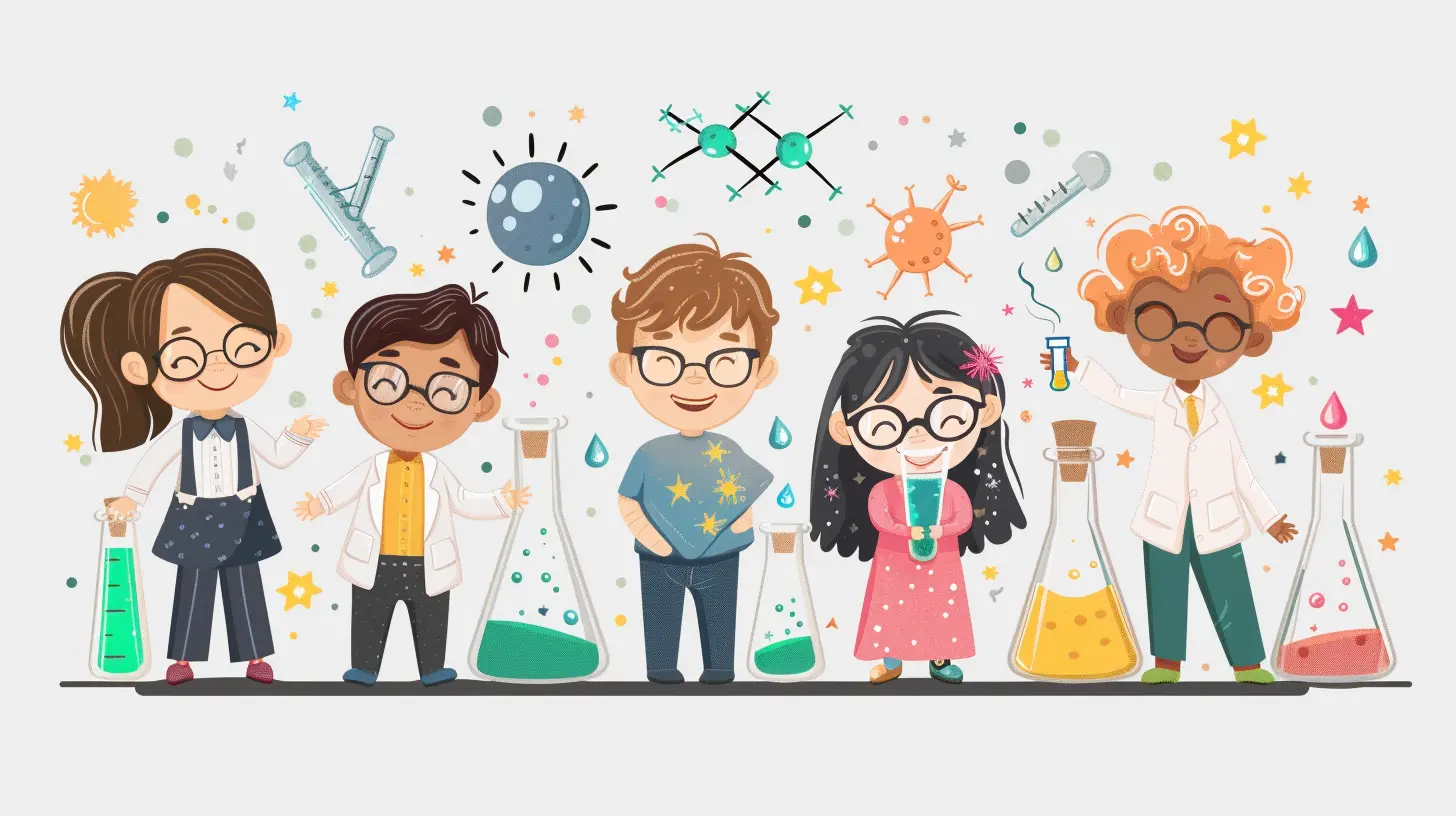
Make It a Hands-On Adventure
Kids don’t want lectures. They want to touch, smash, mix, build, and pour.Some easy and super fun DIY science activities:
1. The Classic Baking Soda Volcano🌋
Mix baking soda and vinegar for an explosive reaction. Add food coloring and glitter for volcano vibes. Talk about chemical reactions and gas formation!2. Make Your Own Slime
Yes, it’s messy. Yes, it's worth it.Mix glue, water, and borax (or try cornstarch for a safer version). Let them play, stretch, and squish. You can sneak in a convo about polymers while their hands are busy.
3. Create a Rainbow in a Glass
Use different liquids like honey, dish soap, water, and oil. Color each one and slowly layer them. Talk density while making something that looks like unicorn juice.4. Ice Fishing with Salt
Place a string on an ice cube, sprinkle salt, wait a few seconds, and lift. It’s magical—and a cool introduction to freezing points and how salt affects ice.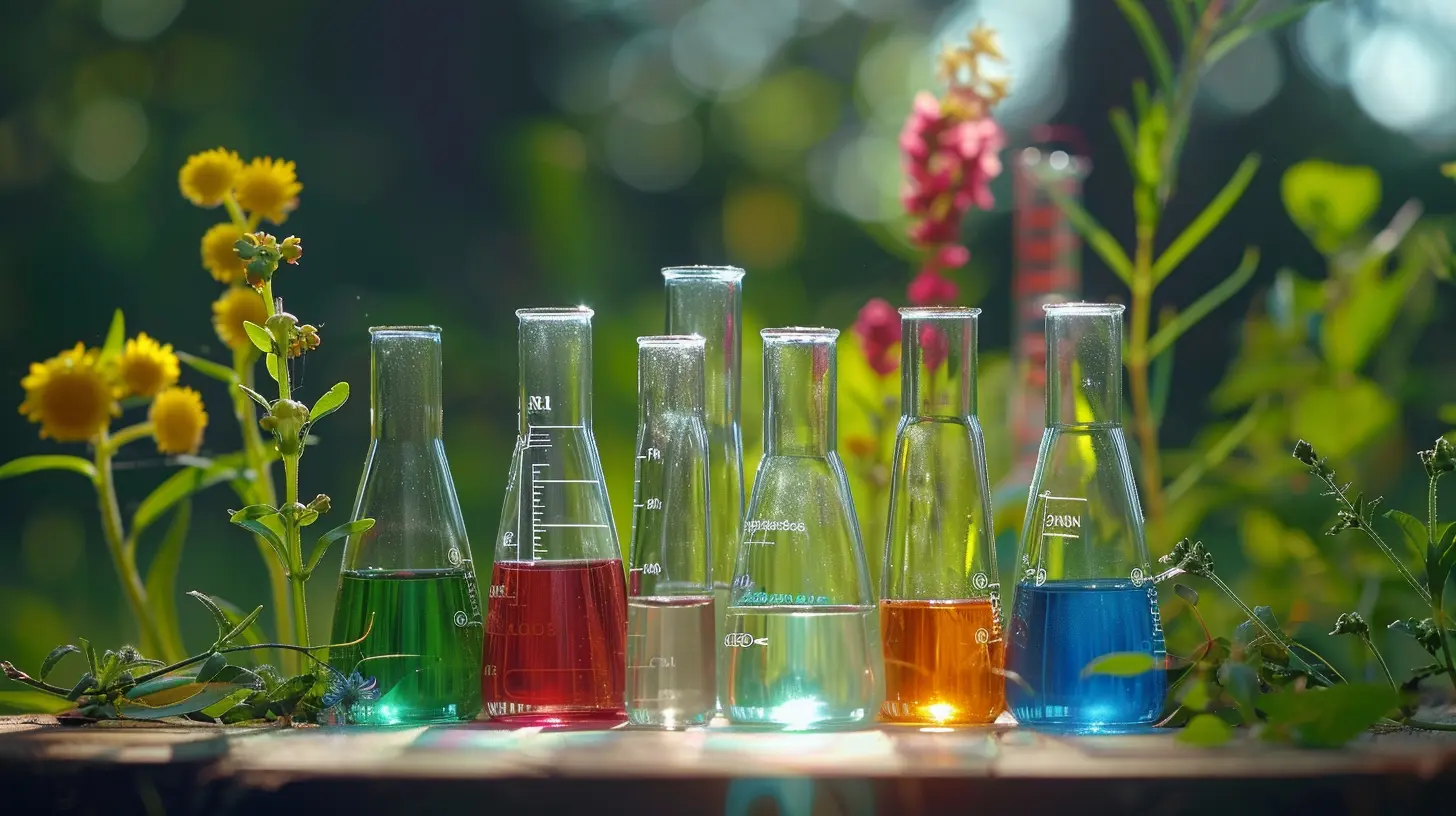
Go Outside—Nature is the Best Classroom
You don’t need a fancy lab or special equipment. The backyard, park, or even a puddle can be your science lab.Nature Science Ideas
- Bug Hunts: Grab a magnifying glass and start exploring.- Cloud Watching: Learn about different types of clouds and weather patterns.
- Leaf Collecting: Talk about photosynthesis and why leaves change color.
- Rock Sorting: Discuss erosion, types of minerals, and even fossils.
You can even get dramatic and call it a “field expedition”—just like real scientists!
Introduce Cool Science Toys and Kits
Sometimes, a good toy can teach more than a textbook ever could. Here are a few favorites:- Microscopes: Even a cheap one from Amazon lets kids see the unseen.
- Crystal Growing Kits: It’s chemistry with pretty results.
- Snap Circuits: Teaches basic electronics and circuitry.
- Terrariums: Teaches biology, ecosystems, and patience.
Remember, the goal isn’t to cram knowledge—it’s to spark curiosity.
Use Shows and YouTube the Right Way
Screen time doesn’t have to be all cat videos and gaming. There are some seriously awesome science shows out there that are both entertaining and educational.Kid-Friendly Science Shows
- Bill Nye the Science Guy (The GOAT)- Magic School Bus (nostalgia + learning = winning)
- Steve Spangler Science (YouTube science wizard)
- SciShow Kids (YouTube channel with bite-sized lessons)
Watch with them and ask open-ended questions like “Why do you think that happened?” or “What would you try instead?”
Make Failures Part of the Fun
Here’s a truth bomb: most science experiments won’t go as planned. Slime might be too runny, baking soda volcanoes might fizzle instead of erupt. And that’s okay!In fact, it’s more than okay—it’s essential. Kids need to know that science is all about trial and error. It’s about failing, trying again, and figuring things out—just like life.
Celebrate the flops with just as much enthusiasm as the wins. Ask them what they think went wrong and what they’d try differently next time. You’re raising problem solvers here!
Turn Everyday Moments Into Science Lessons
Don’t wait for “science time.” We’re surrounded by lessons 24/7. Here’s how to sneak science into your daily routine:- Cooking: Talk about heat, states of matter, or how yeast works.
- Bath Time: Sink vs. float experiments. Add some soap and talk about surface tension!
- Car Rides: Why do clouds float? What makes rainbows? And yes, even “how do toilets work?”
Use their questions as gateways into deeper conversations. No need to pull out a textbook—just chat about it.
Visit Museums, Zoos, and Planetariums
Field trips aren’t just for schools! A weekend trip to the science museum or planetarium is like Disneyland for tiny Einsteins.Let them push all the buttons, turn all the knobs, and walk away with a dozen “whoa” moments. These visits create lasting memories—and may just inspire your child to become the next Neil deGrasse Tyson or Marie Curie.
Hot tip: Ask if your local museum offers “science nights” or special events. Many have guest speakers, hands-on workshops, and family-friendly fun nights.
Get Them a Science Journal
Not all scientists wear lab coats. Many just keep really good notes.Encourage your child to start a “Science Journal”—a notebook where they record their questions, experiments, and observations.
Have them write or draw:
- What they tried
- What they expected
- What actually happened
- What they’d do differently
It’s a cute keepsake and a great tool for developing critical thinking. You’ll also get fun peeks into how their brilliant little minds work.
Be Their Science Sidekick
You don’t have to know all the answers. In fact, it’s better if you don’t. If your child asks, “Why is the sky blue?” don’t panic.Instead, say, “Hmm... let’s find out together!”
This approach does two magical things:
1. Models that it’s okay not to know everything.
2. Shows that learning is a lifelong adventure.
You’re now a team of explorers—Sherlock and Watson, only with goggles.
Celebrate the Wonder, Not Just the Facts
Look, the periodic table is great, but what really captures a kid’s attention is wonder.The “Wait, WHAT?!” moments. The gasp-worthy reveals. The “did you know” facts they can’t wait to share with Grandma.
So focus more on sparking curiosity than memorizing facts. Let them follow rabbit holes of questions. Encourage wild guesses. Science isn’t about right answers; it’s about asking the right questions.
Final Thoughts: Science = Storytelling
At the end of the day, science is just another way of telling the world's story.It explains how trees grow, how stars are born, how your fridge keeps leftovers cold. And when you present it as a magical, exciting, ever-changing story—kids are hooked.
So roll up your sleeves, throw on an apron, and dive in. You'll make messes. You'll laugh. You'll probably end up cleaning slime from your curtains.
But most of all, you’ll be raising a little human who looks at the world with wonder—and that’s the best kind of parenting win.
all images in this post were generated using AI tools
Category:
Education TipsAuthor:

Max Shaffer
Discussion
rate this article
2 comments
Starling Becker
This article beautifully captures the joy of making science enjoyable for our kids. Your creative tips inspire us to explore and learn together, turning every moment into an exciting adventure. Thank you!
June 21, 2025 at 2:50 AM

Max Shaffer
Thank you so much for your kind words! I'm thrilled to hear that you found the tips inspiring. Happy exploring!
Craig McVaney
Great article! Encouraging curiosity in science is essential. Engaging activities and hands-on experiments can truly spark interest and make learning enjoyable for kids. Thanks for sharing!
June 19, 2025 at 2:21 AM

Max Shaffer
Thank you for your kind words! I completely agree—hands-on experiences are key to sparking kids' curiosity in science!
